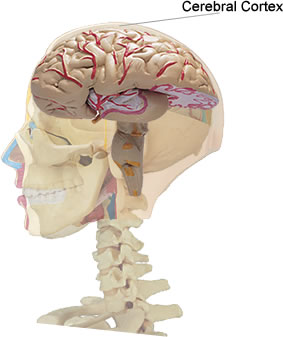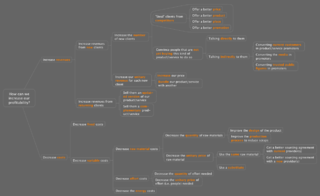Related Research Articles

A business school is a higher education institution or professional school that teaches courses leading to degrees in business administration or management. A business school may also be referred to as school of management, management school, school of business administration, college of business, or colloquially b-school or biz school. A business school offers comprehensive education in various disciplines related to the world of business and management.
A Master of Business Administration is a professional postgraduate degree focused on business administration. The core courses in an MBA program cover various areas of business administration; elective courses may allow further study in a particular area but an MBA is normally intended to be a general program. It originated in the United States in the early 20th century when the country industrialized and companies sought scientific management.

An interview is a structured conversation where one participant asks questions, and the other provides answers. In common parlance, the word "interview" refers to a one-on-one conversation between an interviewer and an interviewee. The interviewer asks questions to which the interviewee responds, usually providing information. That information may be used or provided to other audiences immediately or later. This feature is common to many types of interviews – a job interview or interview with a witness to an event may have no other audience present at the time, but the answers will be later provided to others in the employment or investigative process. An interview may also transfer information in both directions.
The Wharton School is the business school of the University of Pennsylvania, a private Ivy League research university in Philadelphia. Established in 1881 through a donation from Joseph Wharton, a co-founder of Bethlehem Steel, the Wharton School is the world's oldest collegiate business school, and one of six Ivy League Business Schools.

The Graduate Management Admission Test is a computer adaptive test (CAT) intended to assess certain analytical, quantitative, verbal, and data literacy skills for use in admission to a graduate management program, such as a Master of Business Administration (MBA) program. Answering the test questions requires reading comprehension, and mathematical skills such as arithmetic, and algebra. The Graduate Management Admission Council (GMAC) owns and operates the test, and states that the GMAT assesses critical thinking and problem-solving abilities while also addressing data analysis skills that it believes to be vital to real-world business and management success. It can be taken up to five times a year but no more than eight times total. Attempts must be at least 16 days apart.

The Graduate Record Examinations (GRE) is a standardized test that is part of the admissions process for many graduate schools in the United States and Canada and a few other countries. The GRE is owned and administered by Educational Testing Service (ETS). The test was established in 1936 by the Carnegie Foundation for the Advancement of Teaching.
The concepts of fluid intelligence (gf) and crystallized intelligence (gc) were introduced in 1943 by the psychologist Raymond Cattell. According to Cattell's psychometrically-based theory, general intelligence (g) is subdivided into gf and gc. Fluid intelligence is the ability to solve novel reasoning problems and is correlated with a number of important skills such as comprehension, problem-solving, and learning. Crystallized intelligence, on the other hand, involves the ability to deduce secondary relational abstractions by applying previously learned primary relational abstractions.

Recruitment is the overall process of identifying, sourcing, screening, shortlisting, and interviewing candidates for jobs within an organization. Recruitment also is the process involved in choosing people for unpaid roles. Managers, human resource generalists, and recruitment specialists may be tasked with carrying out recruitment, but in some cases, public-sector employment, commercial recruitment agencies, or specialist search consultancies such as Executive search in the case of more senior roles, are used to undertake parts of the process. Internet-based recruitment is now widespread, including the use of artificial intelligence (AI).

A job interview is an interview consisting of a conversation between a job applicant and a representative of an employer which is conducted to assess whether the applicant should be hired. Interviews are one of the most common methods of employee selection. Interviews vary in the extent to which the questions are structured, from an unstructured and informal conversation to a structured interview in which an applicant is asked a predetermined list of questions in a specified order; structured interviews are usually more accurate predictors of which applicants will make suitable employees, according to research studies.

The Yale School of Management is the graduate business school of Yale University, a private research university in New Haven, Connecticut. The school awards the Master of Business Administration (MBA), MBA for Executives (EMBA), Master of Advanced Management (MAM), Master's Degree in Systemic Risk (SR), Master's Degree in Global Business & Society (GBS), Master's Degree in Asset Management (AM), and Ph.D. degrees, as well as joint degrees with nine other graduate programs at Yale University. The Yale School of Management is one of six Ivy League Business Schools.

The case method is a teaching approach that uses decision-forcing cases to put students in the role of people who were faced with difficult decisions at some point in the past. It developed during the course of the twentieth-century from its origins in the casebook method of teaching law pioneered by Harvard legal scholar Christopher C. Langdell. In sharp contrast to many other teaching methods, the case method requires that instructors refrain from providing their own opinions about the decisions in question. Rather, the chief task of instructors who use the case method is asking students to devise, describe, and defend solutions to the problems presented by each case.
Business analysis is a professional discipline focused on identifying business needs and determining solutions to business problems. Solutions may include a software-systems development component, process improvements, or organizational changes, and may involve extensive analysis, strategic planning and policy development. A person dedicated to carrying out these tasks within an organization is called a business analyst or BA.
A coding interview, technical interview, programming interview or Microsoft interview is a technical problem-based job interview technique to assess applicants for a computer programming or software development position. Modern coding interview techniques were pioneered by Microsoft during the 1990s and adopted by other large technology companies including Amazon, Facebook, and Google. Coding interviews test candidates' technical knowledge, coding ability, problem solving skills, and creativity, typically on a whiteboard. Candidates usually have a degree in computer science, information science, computer engineering or electrical engineering, and are asked to solve programming problems, algorithms, or puzzles. Coding interviews are typically conducted in-person or virtually.

Vertical thinking is a type of approach to problems that usually involves one being selective, analytical, and sequential. It could be said that it is the opposite of lateral thinking. Unlike lateral thinking that involves using added intuition, risk taking, and imagination through unconscious and subconscious processes, vertical thinking consists of using more of a conscious approach via rational assessment in order to take in information or make decisions. This type of thinking encourages individuals to employ a sequential approach to solving problem where a creative and multidirectional response are seen as imprudent. Vertical thinkers prefer to rely on external data and facts in order to avoid failure or counterfactual thinking.
Verbal reasoning is understanding and reasoning using concepts framed in words. It aims at evaluating ability to think constructively, rather than at simple fluency or vocabulary recognition.

The following outline is provided as an overview of and topical guide to thought (thinking):
Business analytics (BA) refers to the skills, technologies, and practices for iterative exploration and investigation of past business performance to gain insight and drive business planning. Business analytics focuses on developing new insights and understanding of business performance based on data and statistical methods. In contrast, business intelligence traditionally focuses on using a consistent set of metrics to both measure past performance and guide business planning. In other words, business intelligence focusses on description, while business analytics focusses on prediction and prescription.

Analytical skill is the ability to deconstruct information into smaller categories in order to draw conclusions. Analytical skill consists of categories that include logical reasoning, critical thinking, communication, research, data analysis and creativity. Analytical skill is taught in contemporary education with the intention of fostering the appropriate practices for future professions. The professions that adopt analytical skill include educational institutions, public institutions, community organisations and industry.

An assessment day is usually used in the context of recruitment. On this day, a group of applicants who have applied for a particular role are invited to an assessment centre, where a combination of selection techniques are used by the employers to measure the suitability of an individual for the job role. These selection technique usually include exercises such as presentation, group exercise, one to one Interview, role play, psychometric test etc. Most large organisations like banks, audit and IT firms use assessment days to recruit the fresh talent in their graduate programmes. With an increase of popularity of assessment days, several training institutes have been formed that prepare candidates for assessment days, for example, Green Turn is a famous institute that prepares candidates for assessment days of big 4 accountancy firms.

An issue tree, also called logic tree, is a graphical breakdown of a question that dissects it into its different components vertically and that progresses into details as it reads to the right.
References
- ↑ Maggie Lu, The Harvard Business School Guide to Careers in Management Consulting, 2002, page 21, ISBN 978-1-57851-581-3
- ↑ Wharton MBA Consulting Club, The Wharton MBA Case Interview Study Guide: Volume I, 1997, ISBN 978-1-58207-054-4
- ↑ Booz Allen Hamilton
- ↑ Marc Cosentino, Case in Point: Complete Case Interview Preparation, 2010, page 8, ISBN 978-0-9710158-5-2
- ↑ forbes (2012-01-31). "6 Tools Every Business Consultant Should Know | Harvard Professional Development | Harvard DCE". www.extension.harvard.edu. Retrieved 2017-01-24.